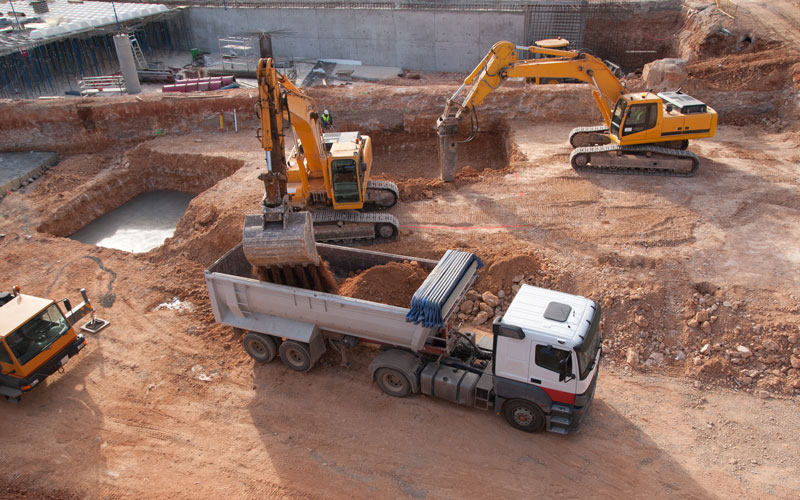
Do you ever use an excavator to load a road truck? If so and you don’t weigh the load, now’s the time to consider adding machine scales to your excavator. Not only will it minimise the risk if something goes wrong, but it will also help to reduce machine wear, save time and reduce wasted material.
Incorrectly loaded or overloaded road trucks carry significant risk for your business and strict road weight laws that help to keep everyone on the road safe could come crashing down on you if your trucks are not legal.
In Australia and New Zealand, chain of responsibility law holds that all parties involved in the transport of goods on our roads are accountable, including drivers, machine operators, weighbridge managers, quarry managers and everyone up the chain right up to company directors.
If an offense is committed by your employee, agent or contractor, it could be treated as having been committed by you both, even if you didn’t know about it, let alone approve it.
In addition to ensuring drivers and operators do not exceed permitted work/rest hours, do not operate machinery while fatigued, that goods are secured appropriately and that drivers keep within speed limits, managers, operators, schedulers, consigners and receivers are responsible for making sure vehicles do not exceed mass or dimension limits.
Those involved with loading road trucks have additional responsibility to document that load does not exceed vehicle mass limits and that load is distributed in the truck to make sure it doesn’t become unsafe or unstable during transport.
By fitting scales to loading machinery including loaders and excavators, operators and managers are able to keep a running total of the weight of the load for each trip as evidence that correct loading procedures have been followed and that the truck is loaded consistently across all axles.
With accurate record keeping, traceability and stock management, excavator scales are a simple and highly effective way to minimise risk to your business and keep track of material movement. And by eliminating paper-based records, a system such as the Loadex 100 by RDS Technology ensures your data is reliably stored and easy to access at any time.
An optional printer can be installed within the machine to give clients a hard copy of load summaries and totals and to keep an accurate paper record if required.
Operators will benefit from knowing accurate weight information and with the ability to input a target load, ensure the correct loading of road trucks with mimimal risk of human error. If loaded past the threshold, an audible alarm will sound to alert the operator. Plus, an optional reversing camera can be fitted to help increase safety on site – it uses the same display in the cab so there’s no extra components to fit into what’s already a crowded space!
As the most flexible and adaptable system available on the market today, the Loadex 100 has the option of static or dynamic weighing positions to suit all applications. Unlike other solutions, it also uses Ultrasonics, a Gyro, inclinometers and a mechanical sensor to provide dynamic weighing capabilities in even the most challenging conditions and terrains to ensure it keeps up with the machine and the job.
With SQL database functionality, data can be exported via serial, Ethernet, USB memory stick or our Tokara 4G & WiFi modem to easily import into other software platforms and suit your existing workflow. You also have the option of one or two-way communication between machines and the office to save time and keep track of your project with iSOSYNC software.
Unique to the customers in Australia and New Zealand is the option to receive remote service and support through Tokara Link, a telematics platform developed by RDS distributor for the region, Aptella. Tokara enables support technicians to remotely login to your system to diagnose technical problems, update software or train the operator, without the need to visit the machine in person!
Knowing what your excavators and loaders are picking up and loading to road trucks is vital in today’s construction industry, both to meet your legal requirements and for on-site safety, insurance and the warranty on your machines. With the added perks of increased efficiency, reduced fuel use and machine wear and a safer, more productive team, there is a lot of upside to embracing this simple and effective technology!

We source, deploy and support intelligent positioning solutions to enhance our customers’ productivity.
Aptella Pty Ltd
ABN 56 130 367 065
2024 Aptella Pty Ltd | ABN 56 130 367 065 | Terms and Conditions | Privacy Policy